RSGS award for sustainability focused Antarctica expedition
An Edinburgh alumna was recently awarded honorary fellowship of the Royal Scottish Geographical Society for her work on outdoor learning and sustainability education in Scottish schools, following her return from an all-female voyage to Antarctica.
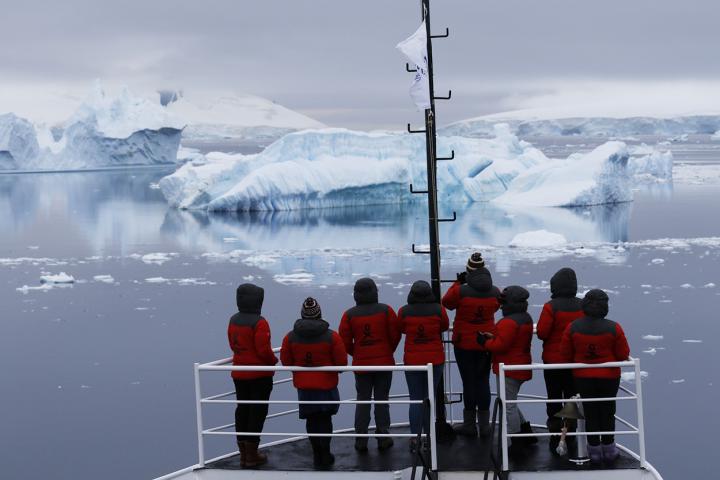
In 2017 Edinburgh alumna Dr Beth Christie was one of two Scottish women selected for a hugely competitive, international, all-female expedition to Antarctica.
Homeward Bound is a social enterprise initiative organised by a small group of international women, working across leadership coaching and science education, which commenced in 2016.
The remit of Homeward Bound is to heighten the influence and impact of women with a sustainability background, in order to influence policy and decision-making as it shapes our planet. It’s a ground-breaking 12 month initiative for women looking to hone their leadership skills, develop international collaborations as well as directly impact environmental policy – culminating in an expedition to Antarctica.
In 2016, Homeward Bound gathered the first 76 of a targeted 1,000 women from around the world, all with sustainability backgrounds, to undertake a year-long, state-of-the-art leadership programme. The year culminated in the largest ever, all-female expedition to Antarctica in December 2016, and was the impetus to keep expanding.
A second cohort of 78 women drawn from 20 countries worldwide, including Beth, recently returned from their Antarctic expedition.
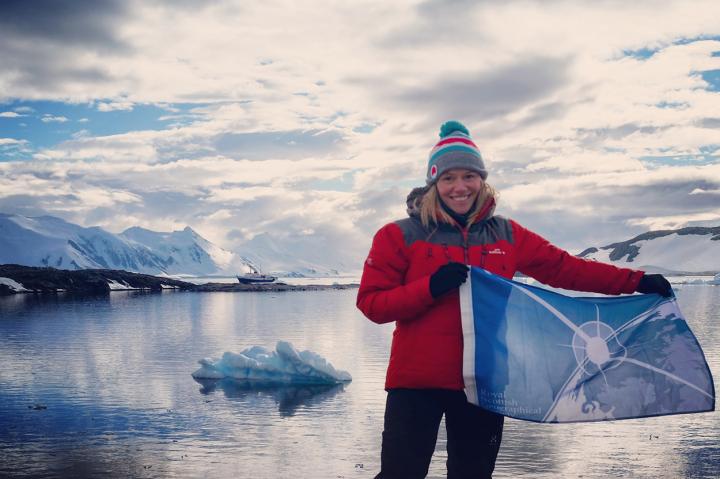
Introducing Beth
Beth graduated from the University for the first time in 1998, with a jointly awarded MA (Hons) Leisure Studies from Edinburgh and Heriot-Watt universities, which also included her winning that year’s Watt Medal. She undertook her PhD at Edinburgh and published her thesis on “Raising achievement in secondary schools: a study of outdoor experiential learning in Scotland” in 2004.
Beth is Programme Director for the postgraduate masters in Learning for Sustainability, Associate Editor of the Journal for Adventure Education and Outdoor Learning and leads a MOOC in Learning for Sustainability: Developing a Personal Ethic which is due to launch for the second time later this year. She has recently been awarded an honorary fellowship of the Royal Scottish Geographical Society for her work in outdoor learning and sustainability education in Scottish schools.
The expedition feeds into Beth's ongoing Principal’s Teaching Award Scheme (PTAS) research – co-led with Dr Callum McGregor, also from Moray House – relating to climate justice education and Learning for Sustainability in Scottish schools. It also links to her work with colleague Dr Sian Henley, from the University’s School of GeoSciences, developing Learning for Sustainability focused educational resources for schools which aim to highlight the connection between our local everyday actions and the global impacts within the polar regions. Beth and Sian’s work is supported by the Royal Scottish Geographical Society and they plan to work with school teachers and students from Moray House and GeoSciences.
How the alumni community helped
Early last year, Beth began to consider how to fund the expedition. Thankfully following an intense period of self-led outreach she was able to secure funding through business sponsorship but her first major donation came from the University of Edinburgh alumni-funded programme, the Innovation Initiative Grants (IIGs) project. This initial investment enabled Beth to secure her place and move forward with her application and sponsorship plans.
IIGs promote new initiatives in teaching, research and student experience. Funded entirely through donations to the University's Edinburgh Fund, these small project grants that enable students and staff to test ideas, initiate projects and invest in equipment and facilities.
Beth describes her Antarctic expedition
... in a combination of blog posts written before and after her voyage:
A childhood passion for adventure
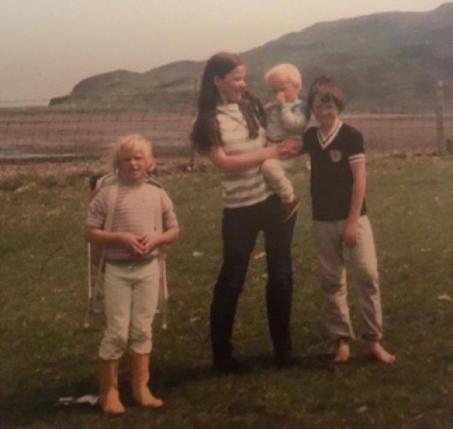
It’s 1984, I’m eigth years old, and my passion for adventure and cold climates is making itself known. My creative writing jotter reveals a fascination; page after page, scene after scene of glaciers, white-outs, avalanches, ice-rescues, summits and peaks. Strangely, at that age I wrote these stories as if I were a young boy. Perhaps I imagined these places as male only or perhaps I was conditioned by the culture of the time – it had only been a year since Janet Thomson had become the first British female scientist to complete field research in Antarctica as part of a British team.
In truth Janet Thompson made it to Antarctica in 1976 (the year I was born) as part of an American team but it took a further eight years of persistence before the British Antarctic Survey amended their rules and allowed her to join their field research team, despite having worked for them since 1964. She led change. It happened. Slowly.
Flicking through time, scanning my school books for clues, I can’t pinpoint the origins of my fascination with snowscapes and outdoor adventure. They weren’t elements of my Scottish childhood. My hometown is famous for golf, not harsh winters, and family holidays were spent chasing my brothers, not traversing glaciers in the High Arctic (that is me in the yellow boots).
Antarctica
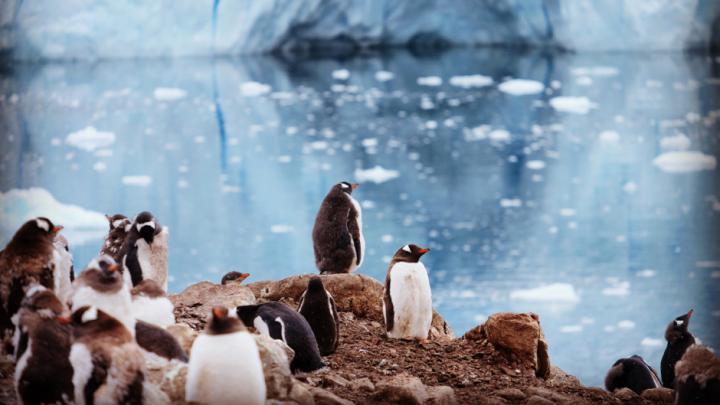
The adventure will capstone a year’s worth of knowledge exchange, self-reflection and research collaboration which has focused on key themes related to gender equity, climate change and leadership.
The journey
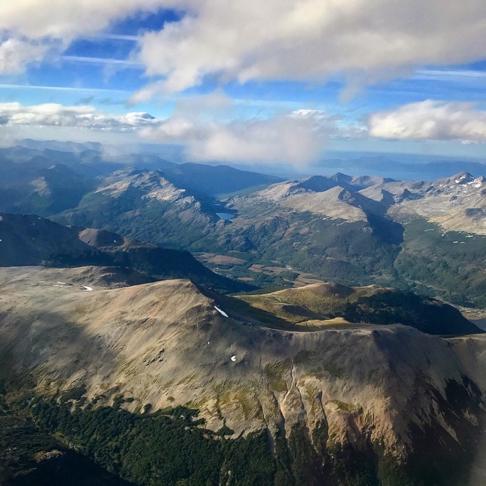
Around latitude 55 degrees south we crossed the Antarctic convergence, a circumpolar transition region which marks the natural, biological boundary of Antarctica. At this point the cold Antarctic waters meet, mix and sink below the relatively warmer waters of the Sub Antarctic. and a circumpolar current flows west to east. As we passed through this point it feels as though we have entered another world.
The temperature drops, the rough seas of the Drake Passage and the Pacific Ocean relax bringing a stillness to the group and the atmosphere. A fine mist hangs in the air for several miles. As we push south the first small icebergs become visible, we catch sight of a plume of spray from humpback whales far in the distance, and the South Shetland Islands emerge on the horizon.
Our expedition takes us via the South Shetlands, and the Argentinian Research bases at Carlini and Camera. We poke our nose into the Weddell Sea but sea conditions force us to retreat and head south along the Western edge of the Peninsula earlier than planned. towards the US owned Palmer research base. While we travel we adapt our plans in light of changing weather and sea-ice, which means the itinerary is constantly revised and our route is not always guaranteed.
Throughout the voyage we reach the Chinese Great Wall research station, the US Palmer research base at Anvers Island making it as far south as the Rothera base station at 67 degrees south latitude. Before taking the decision to carve through thick with wind-blown pack ice in the Gullet, a narrow channel stretching 11 nautical miles north of Adelaide Island, and begin a slow zig-zag north again.
Learning in Antarctica
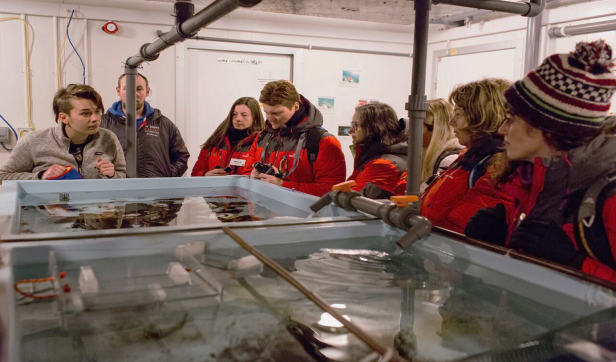
As we travelled we come to know one another and Antarctica by walking and being in the landscape and almost daily encounters with whales, seals, penguins and birdlife. Pic Some of the women had spent seasons in Antarctica previously or had been studying data and samples from the land and ocean floor within their labs at home.
The range of world-class knowledge and expertise within the team provoked an ongoing interpretation of almost every aspect of the geology, flora and fauna both on land and in the oceans as it unfolded before us. Pic It was an absolute privilege to be able to learn from and with such inspiring, knowledgeable and passionate individuals. Our conversations and work continued into the evenings and throughout our time onboard the ship. We worked hard delivering individual symposiums, engaging in group discussions and debate, while shaping and sharing our particular expertise and visions for the future.
In particular, I was keen to meet others who were working in related areas of sustainability education to share the story of outdoor environmental sustainability education that has been evolving in Scotland for a number of years.
Scotland is unique in the way in which it has established a policy architecture that supports and embeds Learning for Sustainability and outdoor learning within the national educational curriculum. The story of Scotland’s educational commitment to sustainability education within and beyond the classroom is key to my research and teaching and our distinctive national approach undoubtedly secured my involvement in the expedition.
Bringing Antarctica back – telling the story
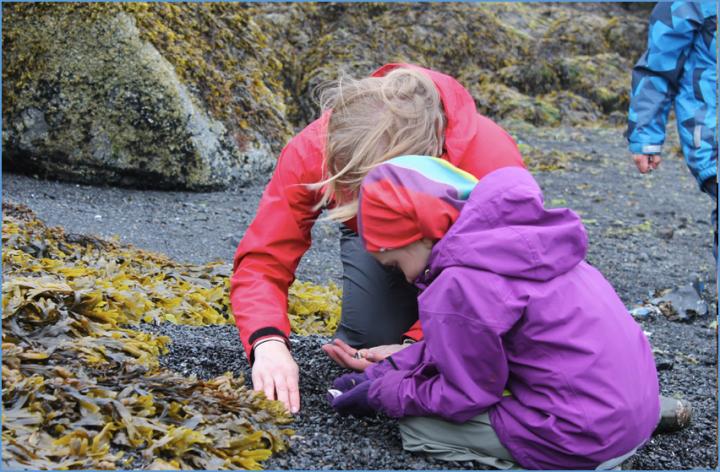
I often teach in the outdoors, invoking immersive sensory experiences to reveal and enrich our relationship with the natural world and to catalyse new narratives. I weave these storylines into my teaching to help communicate complex issues of economic, social and environmental sustainability. They provide comfortable starting points for difficult conversations about our personal response to issues such as climate change, loss of biodiversity and our lifestyle choices.
Rachel Carson (1907–1964), environmental educator, guides my thinking, she epitomises the melding of cognitive and emotional learning: ‘It is not half so important to know as to feel… if facts are the seeds which will later produce knowledge and wisdom then the emotions and the impressions of the senses are the fertile soil in which seeds must grow.’
Often people don’t see themselves within scientific facts, they feel far removed from our everyday lives. Similarly, technical statistics aren’t known for engendering heartfelt connections. But storytelling can engage and inspire; it can help people to better understand themselves, others and the world around them.
The Antarctic expedition offered an opportunity to reveal new understandings, immerse our senses in rich landscapes and craft new stories while amplifying the individual and combined voices of the women onboard: scientists, activists, educators, dancers and artists. Such joint learning, a process of internal and external adventure, both storytelling and listening, is unique, creative and inspiring.
Before leaving for Antarctica I spent time working with the Royal Scottish Geographical Society, Scotland’s Regional Centre for Expertise in Education for Sustainable Development (LfS Scotland) and teachers who are currently studying at the University of Edinburgh through the MSc Learning for Sustainability programme, which I direct, to create ways in which the stories from Antarctica could be brought back into schools in line with the national curricular emphasis on Learning for Sustainability.
This has begun. It is unfolding through school visits, talks at various Scottish educational leadership and professional learning events, more generalist BBC interviews and newspaper articles, ongoing research collaborations within the University of Edinburgh and internationally, teaching within the Moray House School of Education and the second iteration of the MOOC in Learning for Sustainability. This work will continue.
Vision for change
As an eight-year-old I dreamt of Antarctica and wrote about travelling south one day. As a child I was unaware that Janet Thompson was, at that time, breaking the ice and paving the way for British female scientists to research in that field. This year, 34 years on and standing at the British Antarctica Survey UK Rothera base station, I had the privilege of spending time with the first female winter base commander. Jess is leading the team for the second year running and heading into her third Antarctic winter. This is progress.
In my professional field women remain underrepresented; I’m the only female lecturer in a team of five male staff and I have been going solo for almost a decade! However, other areas of underrepresentation also persist; true diversity comes in many forms.
My hope is that the story and ethos of the Antarctica expedition, fuels us all, regardless of gender, to pay attention to the changing landscape we live in and inspires us to imagine how we can seed change for our collective good.
If you wish to contact Beth please email beth.christie@ed.ac.uk
Watch Beth talk about her trip

